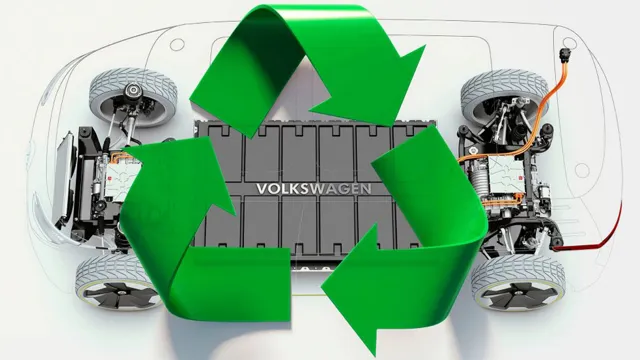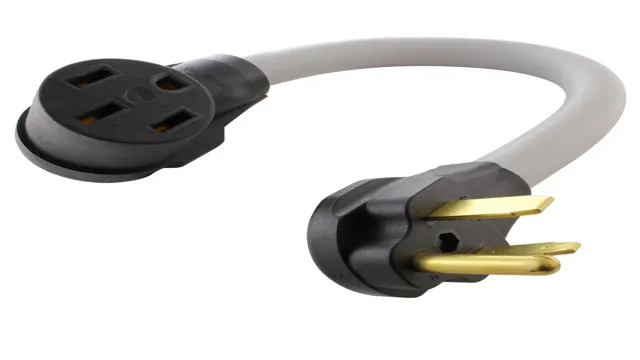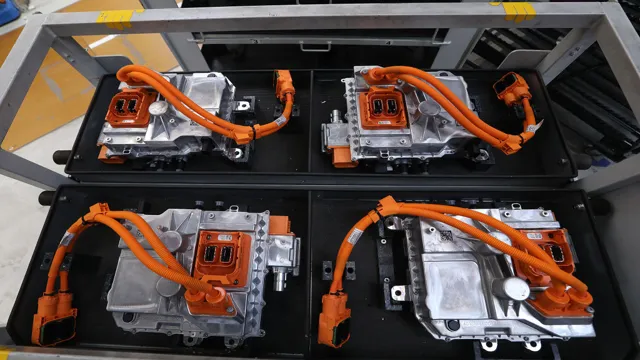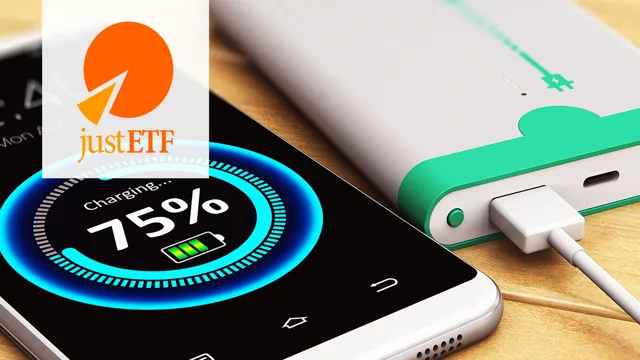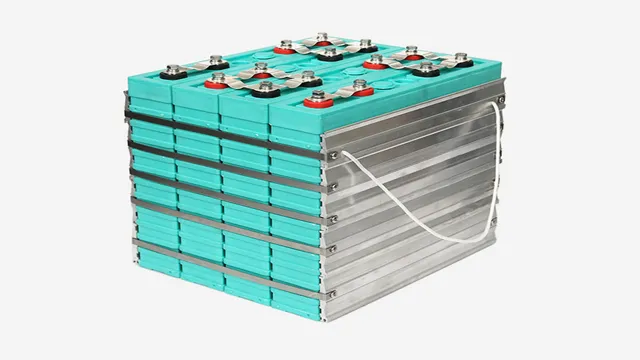Eco-Friendly Innovation: The Truth About Recycling Electric Car Batteries
If you ever wondered what happens with old electric car batteries once they stop powering your vehicle, the answer is simple: they can be recycled. It may come as a surprise, but recycling electric car batteries is not only possible but also a sustainable solution that benefits both the environment and the economy. Electric car batteries are made of various materials, including lithium, nickel, cobalt, and manganese.
When the batteries lose their ability to retain a charge, they can still contain up to 80% of their original capacity. Instead of ending up in a landfill, these batteries can go through a recycling process that extracts the valuable metals and minerals used to produce new batteries. Recycled electric vehicle batteries can also find new life in stationary storage units for renewable energy sources like wind and solar power.
Recycling electric car batteries may not be the most obvious solution when it comes to sustainable practices, but it is crucial in a world where electric vehicles are gaining popularity, and the demand for batteries is skyrocketing. Responsible disposal of these batteries not only prevents harmful substances from polluting the environment but also creates job opportunities and reduces the need for mining and refining new materials. Investing in the recycling of electric car batteries is a smart move that benefits everyone involved.
With the help of technology and innovation, it is possible to create a closed-loop system where batteries can be recycled over and over again, creating a sustainable solution for a brighter and cleaner future.
Environmental Impact of Discarded Batteries
The short answer is yes, electric car batteries can be recycled. In fact, recycling these batteries is crucial to reducing the environmental impact of discarded batteries. Electric car batteries contain valuable metals such as lithium, nickel, and cobalt, which can be extracted and reused.
In addition to reducing waste, recycling these batteries also reduces the demand for new metal mining, which can have significant environmental impacts. However, the process of recycling electric car batteries can be complex and costly, requiring specialized equipment and expertise. Nevertheless, as electric vehicle adoption continues to grow, efforts to develop and streamline battery recycling processes are also increasing.
Statistics on Battery Waste
Battery waste has become a significant problem in recent times. With the rising demand for electronic devices, batteries of all kinds are being used more than ever before, leading to a subsequent increase in battery waste. The environmental impact of discarded batteries is a subject of great concern.
Batteries that end up in landfills can release harmful chemicals, including lead, lithium, and cadmium, into the soil and water. These chemicals can cause serious health issues and negatively impact the overall ecosystem. Additionally, the production process for batteries requires a significant amount of energy and contributes to greenhouse gas emissions.
Considering the impact of battery waste, it is crucial to take steps to minimize its impact on the environment and promote sustainable solutions. By using rechargeable batteries and properly disposing of used batteries, we can play a role in reducing the negative impact of battery waste on the environment.
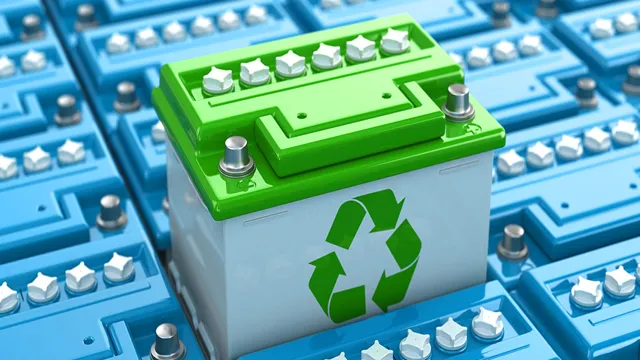
Effects on Ecosystem
When we dispose of batteries, we often don’t think about the impact they can have on the environment. Discarded batteries have the potential to cause serious harm to the ecosystem. Batteries contain heavy metals like lead and mercury, which are toxic to plants, animals, and humans.
If these metals seep into the soil, they can contaminate groundwater, harming aquatic organisms and impacting entire ecosystems. Additionally, when batteries end up in landfills, they can release harmful chemicals into the air, further contributing to air pollution. It’s crucial that we become more aware of the environmental impact of discarded batteries, and take steps to dispose of them properly.
One of the best ways to manage this problem is to recycle our batteries instead of simply throwing them away. By recycling batteries, we can minimize the impact they have on the environment and keep our planet healthy for generations to come.
Electric Car Batteries: Composition and Parts
Yes, electric car batteries can be recycled. In fact, recycling is a critical component of the electric vehicle (EV) industry’s sustainability efforts. Electric car batteries consist of several parts, including a cathode, an anode, electrolytes, and separators, all encased in a metallic casing.
Recycling companies take these batteries and extract materials such as cobalt, nickel, copper, and lithium that can be reused to create new EV batteries and other products. Battery recycling reduces waste, prevents harm to the environment, and conserves valuable resources. However, the process of recycling electric car batteries is complex and requires specialized expertise and facilities.
To ensure that the batteries are recycled safely and efficiently, it is essential to work with reputable recycling companies that follow strict guidelines and regulations. By engaging in responsible waste management practices, we can help minimize the environmental impact of our transportation choices.
Major Components and their Function
When it comes to electric cars, the battery is a crucial component that plays a significant role in determining the vehicle’s performance and range. Electric car batteries are composed of various parts, including the cathode, anode, electrolyte, separator, and casing. The cathode and anode make up the positive and negative terminals of the battery, respectively.
The electrolyte acts as a conductor that allows the flow of ions between the cathode and anode, generating electrical energy. The separator is a porous material that prevents the cathode and anode from coming in direct contact, which can cause a short circuit. The casing protects the battery from external damage and ensures the safety of the vehicle’s occupants.
These components work together to provide the power required to run an electric car. Long gone are the days of gas-guzzling cars; electric vehicles are revolutionizing the automotive industry, providing clean and efficient transportation. Electric car batteries are the backbone of this transformation, and with continued research and development, they are only going to get better.
Materials Used in Battery Production
Today, electric vehicles are becoming an increasingly popular choice for individuals seeking to reduce their carbon footprint and overall environmental impact. However, it is vital to understand the exact materials used in the production of these vehicles to truly grasp their environmental impact. One of the most important components of electric cars is their battery.
Generally, these batteries are composed of several materials, including copper, steel, aluminum, and nickel. Additionally, the batteries rely on a mixture of rare earth metals, which are mined from specific locations around the globe. Some of these metals, like cobalt, are expensive and difficult to source sustainably.
Therefore, as the demand for electric vehicles continues to rise, individuals and companies must work to improve the sustainability of the battery production process. By supporting ethical and sustainable mining practices and investing in technologies to reduce waste and streamline production, the electric vehicle industry can continue to make strides towards a cleaner, more sustainable future.
How Recycling Works
When it comes to recycling electric car batteries, it’s important to understand their composition and parts. Electric car batteries typically consist of three main components: the cathode, anode, and electrolyte solution. The cathode and anode are made up of various metals such as cobalt, nickel, and lithium, while the electrolyte solution acts as a conductor for the battery’s electrical charge.
These materials can be difficult and expensive to extract, but recycling them is essential as they are in limited supply. By reusing the materials from old electric car batteries, we not only reduce our environmental impact but also create a sustainable supply of raw materials for new batteries. So, recycling electric car batteries is a crucial step in creating a greener automotive industry.
Advantages of Recycling Electric Car Batteries
Yes, electric car batteries can be recycled and there are several advantages to doing so. One major benefit is the reduction of greenhouse gas emissions. Recycling batteries reduces the need for new production, which reduces the amount of energy required to extract and process raw materials.
Additionally, recycling helps to conserve natural resources such as lithium and cobalt. Another advantage is the potential economic benefits of a circular economy. Recycling batteries creates job opportunities and supports a sustainable supply chain.
Furthermore, recycling can mitigate the risk of environmental pollution from hazardous waste. In summary, recycling electric car batteries can help to lower the carbon footprint of the electric vehicle industry, benefit the economy, and protect the environment.
Reducing Waste and Greenhouse Gas Emissions
As we move towards a cleaner and more sustainable future, the proper management of electric car batteries is crucial. One effective method is recycling, which has numerous benefits for the environment. By recycling electric car batteries, we can significantly reduce waste and greenhouse gas emissions.
Instead of disposing of batteries in landfills, recycling allows for valuable materials like lithium, cobalt, and nickel to be reused in the manufacturing of new batteries. This reduces the need for mining raw materials, which can have serious environmental consequences. Additionally, recycling batteries helps mitigate the risks of toxic chemicals and heavy metals leaching into our soil and waterways.
By embracing recycling, we can take steps towards a more circular economy, where resources are used efficiently and waste is minimized. So, the next time you need to replace your electric car battery, consider recycling it instead of throwing it away!
Conserving Natural Resources
Recycling electric car batteries is a great way to conserve natural resources and there are several advantages to doing so. First and foremost, recycling these batteries saves on raw materials that are used to create new batteries. This includes metals such as nickel, cobalt, and lithium, which are all finite resources that are becoming increasingly scarce.
Additionally, recycling batteries reduces the amount of waste that ends up in landfills and helps to prevent the release of harmful chemicals such as lead and acid. Recycling also reduces greenhouse gas emissions that are produced during the mining and refining of new metals. Finally, recycled batteries can be used to power a variety of applications, including renewable energy sources like solar panels, further reducing the need for new batteries.
Overall, recycling electric car batteries is an important step in conserving our planet’s natural resources and preventing further harm to the environment.
Future of Electric Car Batteries and Recycling
“Can an electric car battery be recycled?” is a common question regarding the future of electric cars. The answer is: yes, they can. While electric car batteries are much larger and more complex than typical lithium-ion batteries, advancements in recycling technology have made it possible to recycle up to 95% of the materials in electric car batteries.
This reduces the need for mining of new materials and decreases the overall carbon footprint of these vehicles. Additionally, the future of electric car batteries includes advancements in battery life and performance, making them last longer and hold a charge longer. The industry is also moving towards more sustainable and environmentally-friendly materials for batteries, such as recycling materials from old batteries and using materials like cobalt and nickel more sparingly.
Overall, the future of electric car batteries looks bright with advancements in recycling technology, longer battery life, and sustainably-sourced materials.
Conclusion
In conclusion, the answer to the question of whether electric car batteries can be recycled is a resounding “yes!” Just like any other form of technology, electric car batteries have a limited lifespan and will eventually need to be replaced. However, unlike traditional vehicle batteries, which often end up in landfills and contribute to environmental pollution, electric car batteries can be recycled and repurposed for new applications. Not only does this help reduce waste and conserve valuable resources, but it also supports the growth of the electric vehicle industry by enabling more efficient and sustainable production methods.
So, let’s all do our part and “charge” towards a greener future with electric cars and recycled batteries!
FAQs
What happens to an electric car battery when it’s no longer usable?
When an electric car battery is no longer usable, it can either be recycled or disposed of in a landfill. Recycling is the preferred option as it helps reduce waste and recover valuable materials.
What parts of an electric car battery can be recycled?
Electric car batteries can be recycled to recover various materials such as lithium, cobalt, nickel, and aluminum. The recovered materials can then be used in the production of new batteries or other products.
How is an electric car battery recycled?
Electric car batteries are typically shredded to break them down into small pieces. The shredded material is then separated into its various components using different techniques such as pyrometallurgy, hydrometallurgy, or mechanical separation.
What are the environmental benefits of recycling electric car batteries?
Recycling electric car batteries helps reduce the environmental impact of battery production and disposal. By recovering valuable materials, recycling reduces the need for mining and production of new materials, conserves resources, and reduces greenhouse gas emissions.
